Lean on Me
UVA's Young Women Leaders Program goes global
Even the most self-assured girls can struggle in middle school to shrug off the hurtful comments from classmates, the revolving alliances of best friends and the relentless pressure to stand out and fit in at the same time.
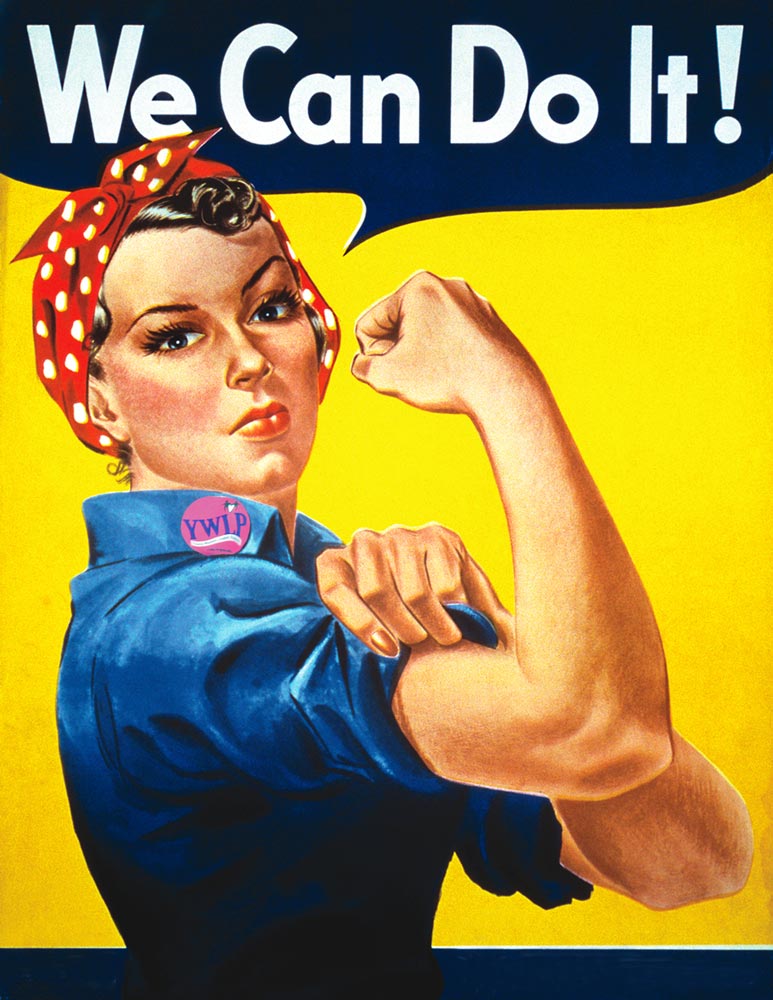
Courtney Cooper (Col '15) is not so far removed from those years that she forgets the "totally brutal time" girls have figuring out where they belong in middle school. But the psychology major from Roanoke, Va., noticed that the "little sisters" assigned to her and other college-age mentors by the University of Virginia's Young Women Leaders Program (YWLP) didn't open up to them immediately.
The seventh-grade girls—referred to as "littles" within the program—from YWLP's Buford Middle School group joked during the past school year that Cooper and the other mentors, or "bigs," were too old to relate to their lives. And yet, the more time that Cooper spent with her "little," even if it was just hanging out in Cooper's dorm room to watch a movie, the more signs she noticed that her little was taking the program's lessons to heart.
"At first she would just shrug it off if she got a bad grade, but then I just happened to talk to her one day, and she just said something real nonchalantly like, 'I've been working really hard. I decided I want to be valedictorian.' That's great, you're in seventh grade, and you're already thinking about that," Cooper says.

The rigorous, curriculum-based program also benefits Cooper and the other UVA undergraduates who volunteer. Now in its 16th year, the Young Women Leaders Program pairs middle school girls with college women in an effort to boost the self-esteem and hone the leadership skills of both groups.
YWLP has served close to 1,200 middle school girls and trained as many college women at UVA. Co-sponsored and run by the Curry School of Education and the UVA Women's Center, the mentoring program is creating a body of research that is redefining best practices for mentoring middle school girls. The program's success has spawned 10 sister programs across the United States, as well as programs in Cameroon and Mozambique.
And it continues to grow. Efforts are underway to start programs following the YWLP curriculum in Panama, Nicaragua and Peru, launched by UVA students from those countries motivated by their experiences mentoring Charlottesville girls.
A curriculum-based approach
On the shelves of Professor Edith "Winx" Lawrence's Bavaro Hall office, the palm-leaf baskets from Mozambique, the hand-carved, wooden YWLP plaque from Cameroon and other mementos reference the program's international reach.
But the inspiration for the program, founded in 1997 by Lawrence (Grad '82) and graduate student Kimberley Roberts (Grad '02), was much closer to home. A professor of clinical psychology in the Curry School, Lawrence recalled her own daughters' middle school experiences.
"I had daughters who in elementary school were going to be president, or this or that, and when they got to middle school, I realized that they seemed to have lost their confidence some," Lawrence says.
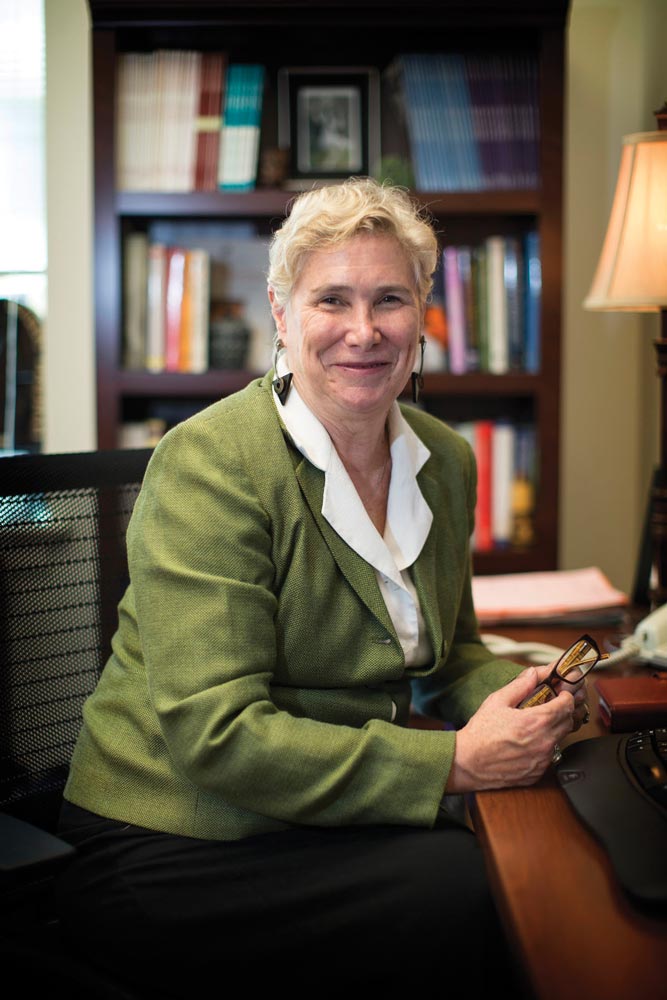
At the same time, the UVA Women's Center was looking for new outreach directions. The center teamed with Lawrence to launch YWLP. They aimed to create a mentoring program that combines an academic background with social activities that address middle school girls' issues with body image, scholastic achievement, social aggression and other adolescent tripwires.
"One of the ways to help women at the University grow and feel more like leaders is to provide them with an opportunity to teach adolescent girls how to feel like leaders," Lawrence says. "Although they're at developmentally different levels, both groups are dealing with similar issues: 'Who am I? Who am I going to be? Who do I want to be it with?'"
Within the mentoring field, skeptics have questioned whether college students, who are often of different races and from different social classes than the adolescents with whom they are paired, can have a positive impact.
But as YWLP evolved into a yearlong program at four Charlottesville middle schools (as well as one at Charlottesville High School), it has been embraced locally.
About 80 UVA students are paired each academic year with local seventh- and eighth-grade girls recommended by teachers and guidance counselors for their potential leadership skills. (The program serves girls across income levels, but about 65 percent of them are eligible for free or reduced-price school lunches.)
As part of its service-learning model, YWLP mentors take a three-credit course in the fall that covers issues facing adolescent girls and best practices in mentoring.
The UVA students review research on teen social aggression and struggles with body image, as well as sections on sexual development and adolescent cognitive development. All of these topics are covered within the context of academic studies that show how accepting mentors can provide the nurturance, approval and support necessary to fuel girls' positive self-images.
Cooper says the weekly reading assignments and other parts of the curriculum helped her understand more clearly the thought processes of her YWLP little sister and other middle school girls.
"It taught me as much as it taught her," Cooper says of the curriculum. "When you read the curriculum beforehand every week, you realize it's easy for you to see how they think."
In addition to the fall course, mentors take a one-credit, pass/fail course in the spring. And each semester, mentors commit to weekly meetings of their Big Sister group, where student mentors meet with program facilitators and discuss how their littles are faring.
Another two hours a week, they meet with their YWLP little sisters in small groups, at the middle schools, with each week devoted to a specific topic. Much of the group time is spent exploring ways girls can navigate difficult situations involving bullying, gossip, dissatisfaction with their own bodies and other issues.
That adds up to five hours a week committed by YWLP mentors, including the four, one-on-one sister activities they are expected to work into their schedules each month.
"The whole mentoring field has been cautious about using college students for mentors because they're not tied to the community, and have different vacation schedules," Lawrence says. "'Are they really going to show up when the going gets tough?' That's why we think this structure we've developed ensures that the college students are not only prepared before they go out, they're supported while they're out there and they're held accountable."
"One of the things that's great about the program is that it comes to us," says Lisa Wright, a guidance counselor at Sutherland Middle School who has recommended seventh- and eighth-grade girls to the program. "There are programs in the community that are wonderful programs, but sometimes kids have problems with transportation or it's held at a time that's not convenient. With YWLP, the mentors come right after school.
"I've seen leadership skills beginning to develop. I really see them beginning to understand, 'If I want to be a leader anywhere, whether it's a leader in a church group, whether it's a leader at my school, on the ball team ...' They're beginning to understand this is what a leader does."
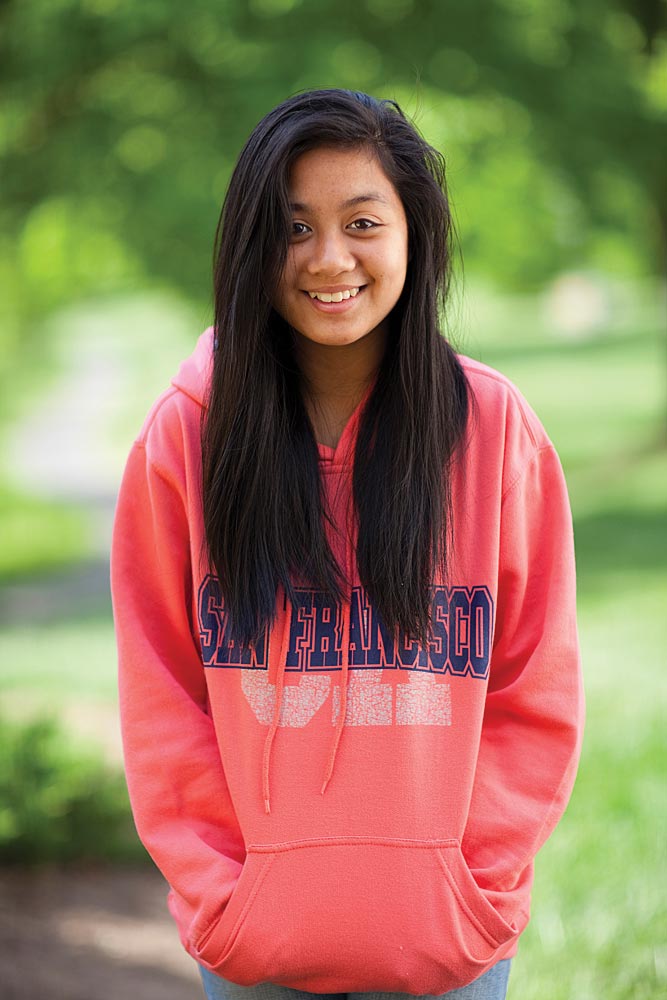
Khairul, 12, moved to Charlottesville the previous year from Brunei with her parents and two younger sisters so that her mother could work on a doctorate in special education at the Curry School. Khairul admitted she was not prepared for the culture shock of the move.
At her private school in Brunei, there was no talk of dating classmates or time spent poring over friends' Facebook posts and Twitter feeds for perceived slights, insults and social exclusions.
Khairul says she's learning to navigate through the drama and has developed a circle of friends. And Grant, she says, is the big-sister figure she was always eager to have, a college student with whom to swap text messages and show off her mastery of a Coldplay riff she has been practicing on her guitar.
"Since our personality styles are similar, we have a lot of inside jokes," Grant says of Khairul. "She has me laughing all the time."
Grading a big sister
YWLP also serves as a data-gathering tool to refine the mentoring process for adolescent girls. Lawrence and the program's coordinators have conducted surveys at the beginning and end of the academic year, tracking variables such as the girls' self-confidence, their academic competence and the mentors' ability to connect with their assigned littles.
"One of the important things we have learned from our research studies is that college students don't have to be perfect mentors when they start," Lawrence says. "You can train mentors to be better and more effective."
Mentors are held accountable through their course work and weekly attendance surveys. Just as important is the positive peer pressure implemented by fellow mentors in the same middle school groups, Lawrence says, because "everybody knows whether you were there or not."
The regimented nature of the program and its demands on time outside the classroom can be imposing, Grant admits. The YWLP was part of her 17-credit course load in the spring, and she also was a resident advisor.
"The intention is to keep us on track with the program and make sure that we're doing everything that we're supposed to be doing to keep this relationship going," Grant says.
Interviews, focus groups and quantitative surveys have produced a growing body of work related to YWLP's evolution. In 2007, the program began a three-year study examining the mentoring experience of 333 seventh-grade girls.
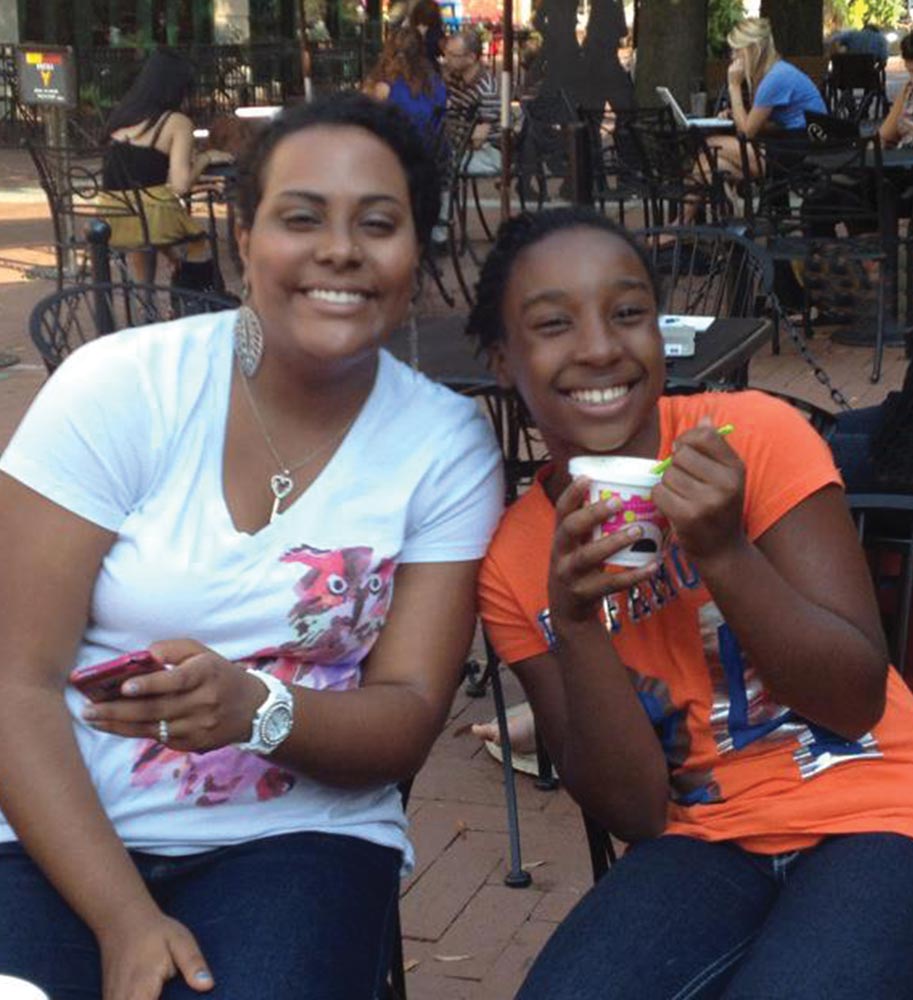
Other studies have reflected the program's benefits experienced by the mentors. According to a series of self-report surveys collected across three academic years, for example, UVA students who served as YWLP mentors reported a positive impact on their ethnocultural empathy, or ability to interact with people from different backgrounds. Compared to a control group of other women engaged in community service, YWLP mentors grew significantly more in that regard, and in terms of their self-worth and autonomy, Lawrence said.
YWLP's approach of blending one-on-one mentoring with group training sessions, backed by an academic curriculum, seems to be a key.
"One key component of service learning is that you need to have reflection time for folks to integrate the academics with the application," Lawrence says. "They also need support … If you don't feel supported in the process, then you're less likely to come away feeling good about yourself."
A national and global model
As YWLP organizers and mentors have left the University, the program has stretched beyond Charlottesville.
Kimberley Roberts, the co-founding member of the program, began three sister sites at Castilleja School in Palo Alto, Calif., where high school students mentor middle school girls.
After three years in YWLP, Amber McCrady Toeller (Col '09) launched a sister site in the Mississippi Delta region as a Teach for America teacher based in Arkansas.
In 2006, YWLP hired an outreach coordinator to continue establishing and working with new sister sites. In total, 10 sister sites following the YWLP curriculum have been launched nationally.
The program's reach has expanded to Africa and Latin America, with efforts made to synchronize local YWLP school groups in Charlottesville with their YWLP sisters in other developing programs.
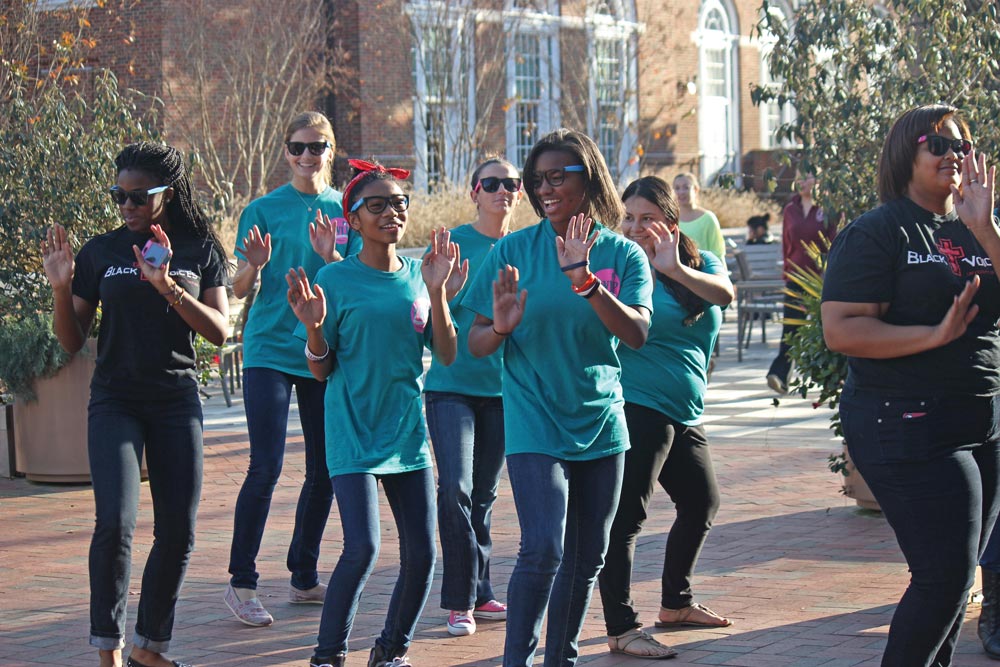
Caroline Berinyuy (Educ '12), a Curry doctoral student who worked with Lawrence in 2009, saw the program as a way to keep African girls in school longer and created, developed and expanded three YWLP pilot programs in her native country of Cameroon.
Within a few years, almost 600 girls have participated in the Cameroon program at various schools in Dschang, Kumbo and Buea. There are not enough mentors to establish one-on-one relationships with the growing number of girls participating in the program, Berinyuy says, so college women and high school students serve as mentors to larger groups of girls.
"We focus on health and body issues," Berinyuy says, "but we also work to encourage the girls to stay in school."
Jennifer Merritt, director of mentoring and diversity at the UVA Women's Center, and YWLP's associate director, oversees the international program's budget, which relies on grants from the Alumni Association's Jefferson Trust, the Alcoa Campus Partnership program, Jefferson Public Citizens and other donors to evaluate and fund international programs.
With some technological support from the Curry School, the program is producing video recordings of YWLP lectures that can be posted online and made available to sister international programs, she says.
Meanwhile, mentors and middle school girls in Charlottesville now include a "global connections" section in their curriculum that covers cultural awareness of the sister programs as well as topics such as global food distribution and challenges faced by girls in other parts of the world.
YWLP also maintains a sister site outside of Maxixe, Mozambique, and another in Panama. And grant funding allowed a group of undergraduates to visit Nicaragua and Peru recently, with the goal of setting up YWLP centers in those countries as well.
Wherever the program heads next, Lawrence and the other YWLP administrators are eager to hear other girls echo the comments of Farisya Khairul, the 12-year-old seventh-grader at Sutherland Middle School.
After the program's annual "UVA Day," held on Grounds to expose girls to engineering, nursing and a variety of career options to pursue in college, Khairul knew she was on the right path.
"When I saw how big the community was, I was pretty happy that I joined it," she says. "I hope to be a good leader."